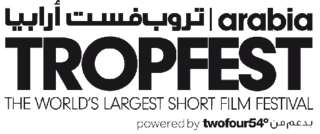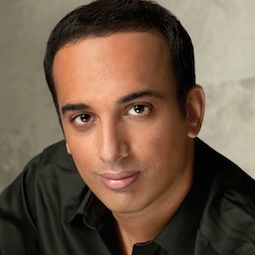Related Research Articles

Sir Wilfred Patrick Thesiger, also known as Mubarak bin Landan was a British military officer, explorer, and writer.

Hussain Ibrahim Saleh al-Shahristani is an Iraqi politician who served in different cabinet posts. He served as Iraq's Minister of Higher Education.

Middle Eastern Cinema collectively refers to the film industries of Western Asia and part of North Africa. By definition, it encompasses the film industries of Egypt, Iran, Bahrain, Iraq, Israel, Jordan, Kuwait, Lebanon, Palestine, Oman, Qatar, Saudi Arabia, Syria, United Arab Emirates, and Yemen. As such, the film industries of these countries are also part of the cinema of Asia, or in the case of Egypt, Africa.

The cinema of Somalia refers to the film industry in Somalia. The earliest forms of public film display in the country were Italian newsreels of key events during the colonial period. In 1937 the film Sentinels of Bronze was produced in Ogaden Somalia, with nearly all Somali actors. Growing out of the Somali people's rich storytelling tradition, the first few feature-length Somali films and cinematic festivals emerged in the early 1960s, immediately after independence. Following the creation of the Somali Film Agency (SFA) regulatory body in 1975, the local film scene began to expand rapidly. In the 1970s and early 1980s, popular musicals known as riwaayado were the main driving force behind the Somali movie industry. Epic and period films as well as international co-productions followed suit, facilitated by the proliferation of video technology and national television networks. In the 1990s and 2000s, a new wave of more entertainment-oriented movies emerged. Referred to as Somaliwood, this upstart, youth-based cinematic movement has energized the Somali film industry and in the process introduced innovative storylines, marketing strategies and production techniques.

Arab cinema or Arabic cinema refers to the film industry of the Arab world which depends for most of its production on the Egyptian cinema.
The cinema of the United Arab Emirates began with a number of feature films that were broadcast on national television since the late 1980s.
The cinema of Iraq went through a downturn under Saddam Hussein's regime. The development of film and film-going in Iraq reflects the drastic historical shifts that Iraq has experienced in the 20th century. The Iraq War which began in 2003 had an influence on many films being produced.

Nujoom Alghanem is an Emirati poet, artist and film director. She has published eight poetry collections and has directed more than twenty films. Alghanem is active in her community and is considered a well established writer and filmmaker in the Arab world. Her achievements in the arts have been recognized both nationally and internationally. She is the cofounder of Nahar Productions, a film production company based in Dubai. Currently she works as a professional mentor in filmmaking and creative writing, as well as a cultural and media consultant.
Back to Babylon is a documentary film directed by the Iraqi-French film director Abbas Fahdel.

Hisham Zaman is a Norwegian film director and screenwriter of Kurdish origin. He graduated from the Norwegian Film School at Lillehammer in 2004. His films center on the stories and inner dilemmas of characters united by a common refugee experience, exploring human themes such as love, acceptance, sacrifice, revenge, loyalty and honour. He has co-written several of his scripts with the Norwegian crime novelist Kjell Ola Dahl.
Mohamed Said Mahfouz (Arabic: محمد سعيد محفوظ is an Egyptian writer and filmmaker who has worked for the BBC since 2006. He was the presenter and scriptwriter of the widely popular, daring show 'Maqass El-Raqeeb' on Abu Dhabi TV, focusing on liberties and human rights in the Arab world. He produced a number of independent documentaries and won several awards, of which the last was from Al Jazeera International Documentary festival in April 2009. He has been in the UK since March 2006 where he obtained his Master of Arts in Documentary from Royal Holloway University. Currently, he is pursuing his Ph.D at the same university in New Media and Filmmaking.
Oday Rasheed is an Iraqi film director and writer. He studied at the Institute for Electrical Science as well as the Faculty of Applicable Arts in Baghdad, both of which he quit early to dedicate himself to cinema. For a while he worked as freelance writer, writing essays and film reviews in Baghdad.

Amr Waked is an Egyptian film, television and stage actor. He is best known to international audiences and in Hollywood for his role in the 2005 film Syriana. Other prominent roles include a Yemeni Sheikh called Muhammad in Salmon Fishing in the Yemen, Pierre Del Rio in Luc Besson's Lucy and Farouk Hassan in Ramy.

Son of Babylon is a 2010 Iraqi drama film directed, produced and co-written by Mohamed Al-Daradji, Variety's Middle Eastern Filmmaker of the year 2010.

Tropfest Arabia is an extension of Tropfest, the world's largest short film festival. Tropfest began in 1993 as a screening for 200 people in a cafe in Sydney but has since become the largest platform for short films in the world.
Isabelle Stead is a British film director, producer and philanthropist.
BrandMoxie is a marketing and advertising agency managed by Sana Bagersh. It is based in the twofour54 media center in Abu Dhabi, UAE.

Ghazi Albuliwi is best known for his 2013 film Peace After Marriage which he was a writer, actor, and director for. He also worked on the film West Bank Brooklyn.

Going to Heaven is a 2015 Emirati film directed by Saeed Salmeen Al-Murry, Produced by Amer Salmeen and starring Jumaa Ibrahim Al Zaabi, Ahmed Ibrahim Al Zaabi, Fatima Al Taei, Mariam Sultan and Abdullah Masood. Its plot is set in the United Arab Emirates. The story is about a young 11 years old boy called Sultan who travels from Abu Dhabi to Fujairah with his best friend, Saud, to reunite with his maternal, far gone grandmother, who is estranged from the family.